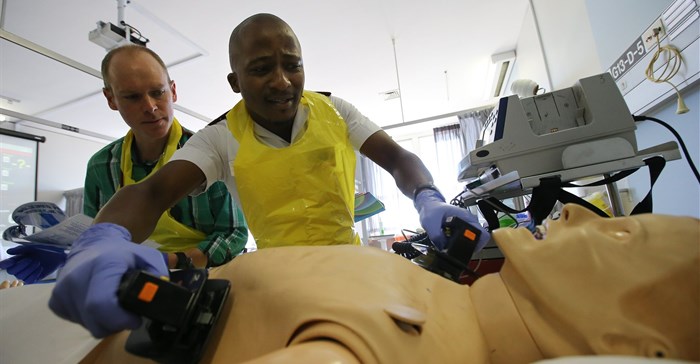
Related






South Africa's fuel sector under scrutiny: Why stricter safety measures are crucial
Liesl Esau 27 Aug 2025
Top stories






More news


Marketing & Media
Ads are coming to AI. Does that really have to be such a bad thing?














The Safety in Health Simulation Centre is a model ward aimed at fostering better teamwork between staff across the healthcare professions. Here, students, interns, nurses and other staff are able to practise a range of skills, including aseptic nursing techniques, sharps procedures and team communication.
This is the first facility of its kind in Africa as far as we know, says Terence Moodley, public affairs manager at BD (Beckton Dickinson), the medical technology company that refurbished the space. “Young nurses and doctors are taught in silos. The centre aims at bringing them all together to develop a culture of safety and enhance the quality of training.”
Learning at the centre is supported through the ongoing development of a safety curriculum, methods for testing policies and protocols related to sharps and infection prevention and a digital library with multimedia educational resources.
“One goal here is to make the clinical workplace safer. This is a place where students can come to learn skills without compromising the safety of the patients or affecting the dignity of healthcare workers,” says Dr Rachel Weiss, director of the UCT Clinical Skills Centre.
She explains that procedural skills competency taught in a classroom don’t always translate well into safer clinical practices, as students may find themselves in working environments where protocols might not be the same. “Students need lots of practise in different settings.”
Weiss says training at the centre focuses on multidisciplinary team communication, safety in administering sharps and cannulas and infection control and prevention are “areas where we’ve noticed gaps”.
Globally, infection management in clinical settings, such as clinics and hospitals, is a challenge faced by all health professionals. In South Africa, where the incidence of TB and MDR-TB is high, preventative measures include ensuring proper ventilation, adhering to policies minimising exposure and wearing safety masks where necessary. Proper use and disposal of sharps minimise the risk of contracting HIV and hepatitis.
Patients can also be exposed to infections through inadequate hygiene during procedures or injuries resulting from equipment malfunction or improper use.
When fully operational, the centre will be linked to other training centres across the country and elsewhere in Africa so that its contribution extends beyond UCT and the Western Cape region.
